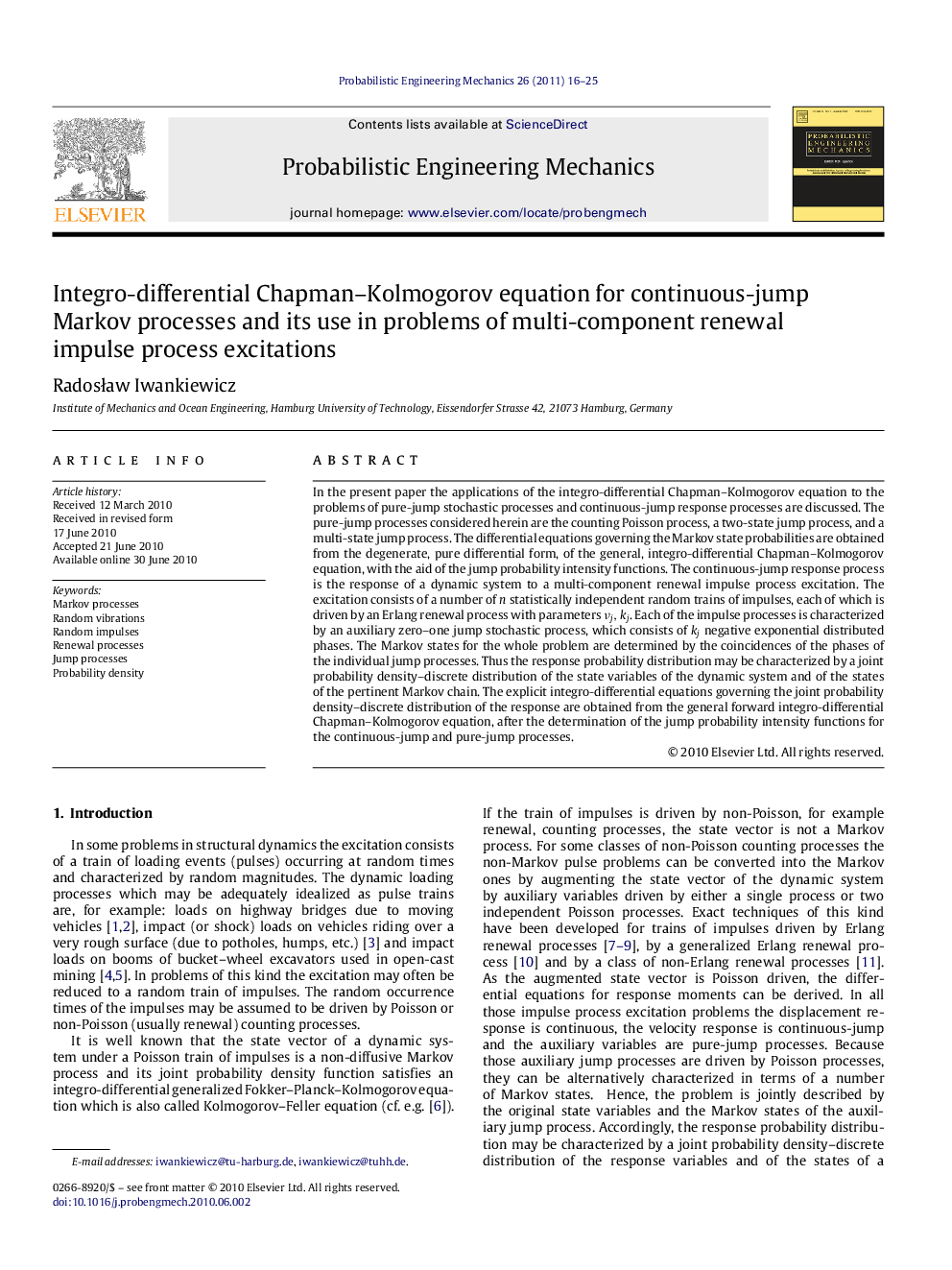| کد مقاله | کد نشریه | سال انتشار | مقاله انگلیسی | نسخه تمام متن |
|---|---|---|---|---|
| 802388 | 904385 | 2011 | 10 صفحه PDF | دانلود رایگان |

In the present paper the applications of the integro-differential Chapman–Kolmogorov equation to the problems of pure-jump stochastic processes and continuous-jump response processes are discussed. The pure-jump processes considered herein are the counting Poisson process, a two-state jump process, and a multi-state jump process. The differential equations governing the Markov state probabilities are obtained from the degenerate, pure differential form, of the general, integro-differential Chapman–Kolmogorov equation, with the aid of the jump probability intensity functions. The continuous-jump response process is the response of a dynamic system to a multi-component renewal impulse process excitation. The excitation consists of a number of nn statistically independent random trains of impulses, each of which is driven by an Erlang renewal process with parameters νj,kjνj,kj. Each of the impulse processes is characterized by an auxiliary zero–one jump stochastic process, which consists of kjkj negative exponential distributed phases. The Markov states for the whole problem are determined by the coincidences of the phases of the individual jump processes. Thus the response probability distribution may be characterized by a joint probability density–discrete distribution of the state variables of the dynamic system and of the states of the pertinent Markov chain. The explicit integro-differential equations governing the joint probability density–discrete distribution of the response are obtained from the general forward integro-differential Chapman–Kolmogorov equation, after the determination of the jump probability intensity functions for the continuous-jump and pure-jump processes.
Journal: Probabilistic Engineering Mechanics - Volume 26, Issue 1, January 2011, Pages 16–25